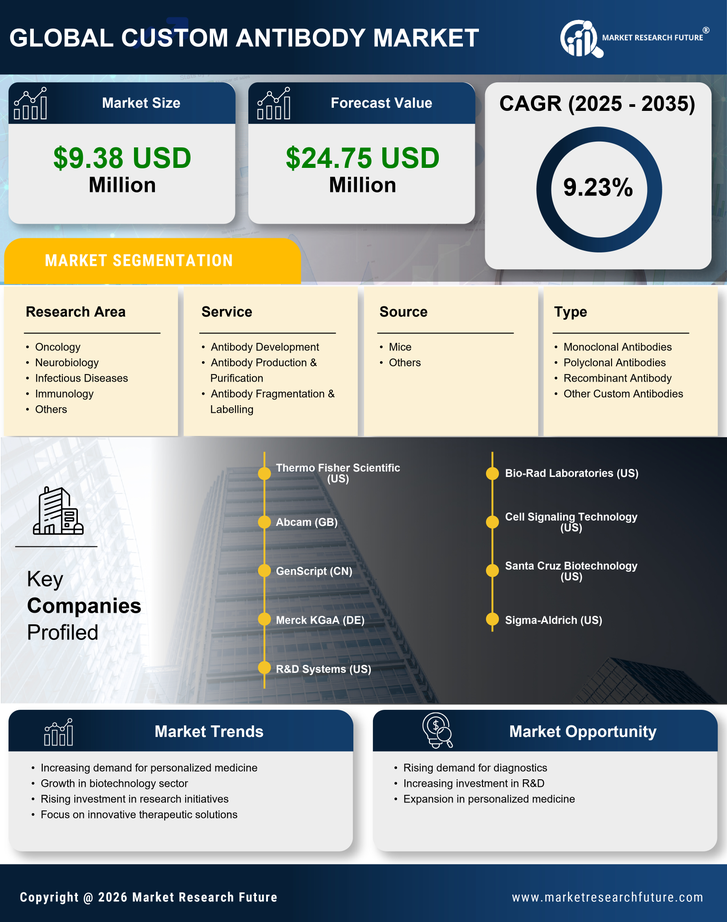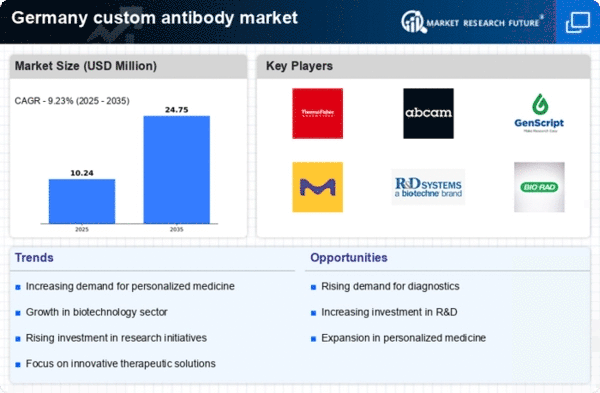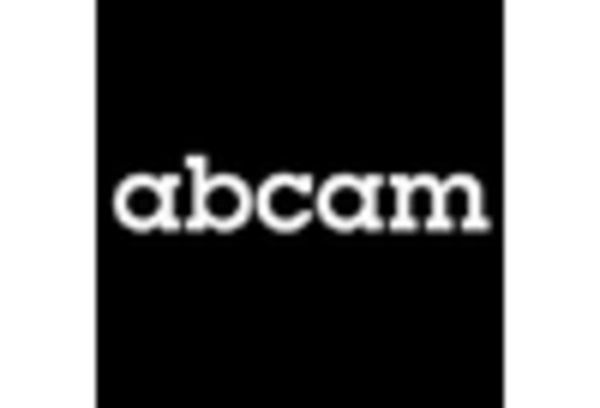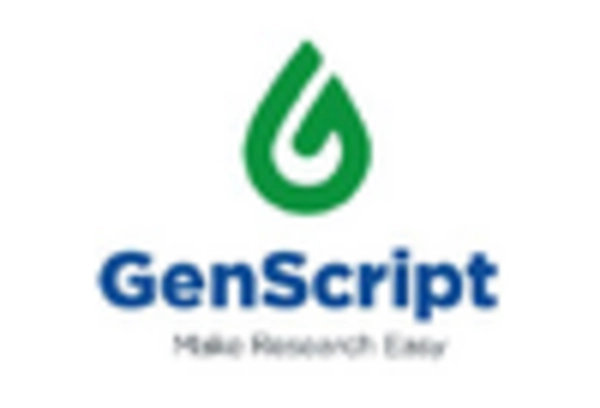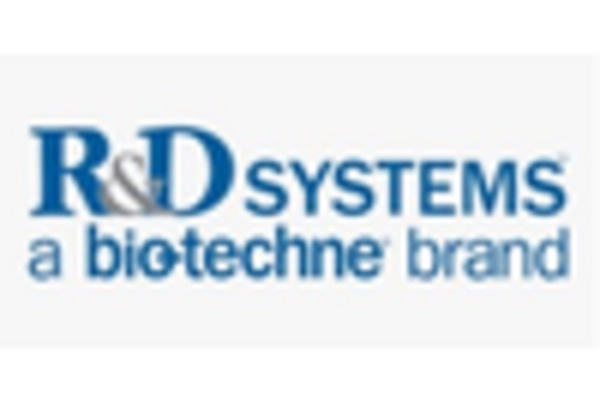Advancements in Biotechnology
The custom antibody market in Germany is experiencing a surge due to rapid advancements in biotechnology. Innovations in genetic engineering and recombinant DNA technology are enabling the development of highly specific antibodies. This is particularly relevant in therapeutic applications, where precision is crucial. The market is projected to grow at a CAGR of approximately 10% over the next five years, driven by these technological advancements. Furthermore, the increasing integration of artificial intelligence in antibody design is streamlining the development process, making it more efficient. As a result, the custom antibody market is likely to see a significant increase in both the number of products available and their efficacy, catering to the growing needs of researchers and clinicians alike.
Regulatory Framework Enhancements
The regulatory landscape in Germany is evolving to better support the custom antibody market. Recent enhancements in regulatory frameworks are aimed at expediting the approval process for new biopharmaceuticals. The Federal Institute for Drugs and Medical Devices (BfArM) is actively working to streamline regulations, which could potentially reduce the time to market for custom antibodies. This regulatory support is crucial for companies looking to innovate and bring new products to the market efficiently. As a result, the custom antibody market is likely to see an influx of new therapies that meet the stringent safety and efficacy standards set by regulatory bodies. This proactive approach to regulation may foster a more dynamic market environment, encouraging further investment and development.
Rising Demand for Diagnostic Tools
The custom antibody market is also being driven by an increasing demand for diagnostic tools in Germany. As healthcare providers seek more accurate and efficient methods for disease detection, the need for high-quality antibodies is becoming more pronounced. Custom antibodies are essential for various diagnostic applications, including immunoassays and imaging techniques. The market for diagnostic tools is projected to grow at a CAGR of around 8% in the coming years, reflecting the growing emphasis on early disease detection and personalized medicine. This trend is likely to bolster the custom antibody market, as companies strive to meet the rising demand for innovative diagnostic solutions. The integration of custom antibodies into diagnostic workflows is expected to enhance the overall effectiveness of disease management.
Increasing Prevalence of Chronic Diseases
The rising prevalence of chronic diseases in Germany is significantly impacting the custom antibody market. Conditions such as cancer, autoimmune disorders, and infectious diseases are on the rise, necessitating the development of targeted therapies. The custom antibody market will benefit from this trend, as antibodies play a crucial role in the treatment of these diseases. According to recent statistics, chronic diseases account for nearly 70% of all deaths in Germany, underscoring the urgent need for effective treatment options. This growing demand for specialized therapies is likely to drive investments in the custom antibody market, as pharmaceutical companies seek to develop innovative solutions tailored to specific patient needs. Consequently, the market is expected to expand as new therapies emerge.
Growing Investment in Research and Development
Investment in research and development (R&D) within Germany is a key driver for the custom antibody market. The German government, along with private entities, is allocating substantial funds to support biopharmaceutical research. In 2025, R&D spending in the life sciences sector is expected to reach €5 billion, reflecting a commitment to fostering innovation. This influx of capital is likely to enhance the capabilities of companies involved in the custom antibody market, allowing them to develop novel products and improve existing ones. Additionally, collaborations between academic institutions and industry players are becoming more prevalent, further stimulating growth in this sector. The emphasis on R&D is expected to yield breakthroughs that could redefine therapeutic approaches, thereby expanding the market.
